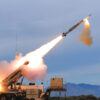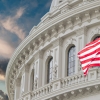|
Getting your Trinity Audio player ready...
|
President Joe Biden announced on Friday that he considers the Equal Rights Amendment to have been ratified. His statement “affirm[ed] what I believe and what three-fourths of the states have ratified: the 28th Amendment is the law of the land, guaranteeing all Americans equal rights and protections under the law regardless of their sex.” He then repeated this claim at a meeting of the U.S. Conference of Mayors.
First introduced in Congress in 1923, the ERA was submitted to state legislatures for ratification in 1972. The amendment reads in its entirety:
“Section 1. Equality of rights under the law shall not be denied or abridged by the United States or by any State on account of sex.
Section 2. The Congress shall have the power to enforce, by appropriate legislation, the provisions of this article.
Section 3. This amendment shall take effect two years after the date of ratification.”
Alabama Attorney General Steve Marshall has long been an opponent of attempts to ratify the Equal Rights Amendment. In 2019, he filed a lawsuit over the archivist accepting ratifications of the amendment after an initial seven year deadline, accusing the ERA of promoting “a far-left agenda.” Then, this past December, he sent a letter to the archivist arguing against certification of the amendment.
In a Friday statement, Marshall lambasted Biden’s declaration, pointing to the legal precedents which suggest the deadline is binding, criticizing Biden’s “disastrous four years in office,” and enthusing about President-elect Trump’s forthcoming inauguration.
“No serious person believes the sham that a proposed amendment to the Constitution, which expired in the 1970s after being rejected by the American people, has somehow sneaked into our Constitution,” he said. “Every judge to consider the issue—including judges appointed by Presidents Obama and Biden—has rejected this preposterous notion.”
The main sticking point for proponents of the ERA is whether Congress can put deadlines on the ratification of proposed amendments. The Equal Rights Amendment wouldn’t be the first constitutional amendment to pass decades after first being sent to the states to ratification after all. The most recent amendment, the 27th, was proposed in 1789 and only ratified over two hundred years later in 1992.
But when Congress sent the Equal Rights Amendment to the states, their joint resolution said it would be “valid to all intents and purposes as a part of the Constitution when ratified … within seven years from the date of its submission.” Congress debatably extended this deadline to 1982 in 1978 but that new deadline also passed without ratification by three-fourths of the states.
The American Bar Association, though, recently adopted a resolution stating in part that “any time limit for ratification of an amendment to the United States Constitution … is not consistent with Article V of the Constitution.” Biden also says he extensively consulted constitutional scholars before issuing his recent declaration.
If the deadline isn’t binding, then 38 states have ratified the proposed amendment, most recently Virginia in 2020, Illinois in 2018, and Nevada in 2017. Virginia’s ratification would then mean the amendment has fulfilled the requirement of being “ratified by the Legislatures of three fourths of the several States.”
It is important to note that six state legislatures have attempted to issue post hoc revocations of their states’ ratifications. But when the Ohio and New Jersey state legislatures tried to revoke their ratification of the 14th Amendment during Reconstruction, Congress still counted the two states when determining if the amendment had been ratified. Both states later symbolically ratified the amendment in 2003.
Biden’s announcement that he believes the ERA has been ratified followed most Democratic senators signing onto a November letter asking him to “direct the archivist of the United States to certify and publish the Equal Rights Amendment (ERA) as the 28th Amendment.” (In addition to maintaining America’s historical documents, the archivist is tasked with certifying that constitutional amendments are valid.) Biden did not so direct the archivist.
Around a month after the senators’ letter was sent, the archivist and deputy archivist released a joint statement declaring that “the Equal Rights Amendment (ERA) cannot be certified as part of the Constitution due to established legal, judicial, and procedural decisions.” They have not released another official statement following Biden’s recent affirmation but NPR reports both that a Biden administration official called the archivist’s role “purely ministerial” and the National Archive directed reporters back to their December statement.
While Trump’s pending inauguration and Biden’s decision not to order the archivist to certify the amendment will both likely render Friday’s statement ineffective, the most recent polling shows a majority of American voters support adding the Equal Rights Amendment to the Constitution. Earlier polling that didn’t mention Biden by name has tended to show a supermajority in support.
It is quite likely that the next Democratic president will decide to continue pursuing the ratification of the Equal Rights Amendment, either by ordering the archivist to certify it or by shepherding an extension of the deadline through Congress. However, barring a surprise outcome in the courts, the Equal Rights Amendment seems equally unlikely to become an official amendment in the immediate future.























































